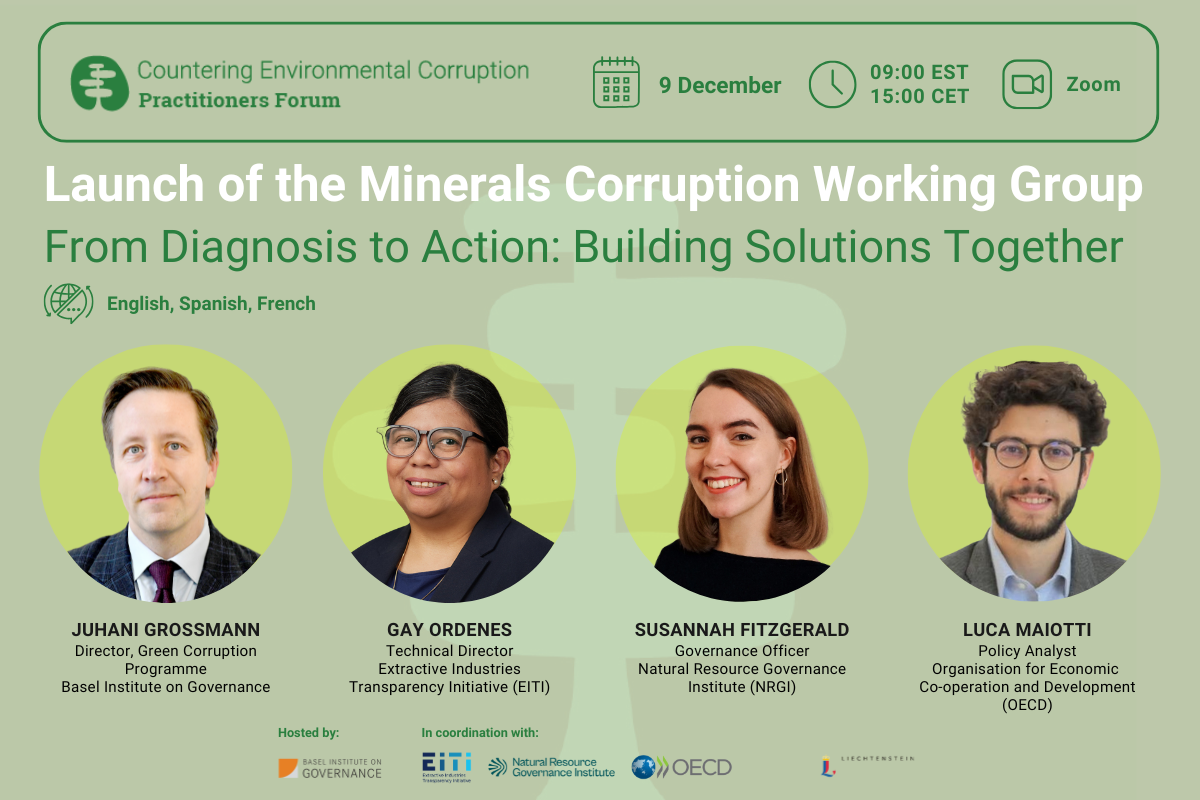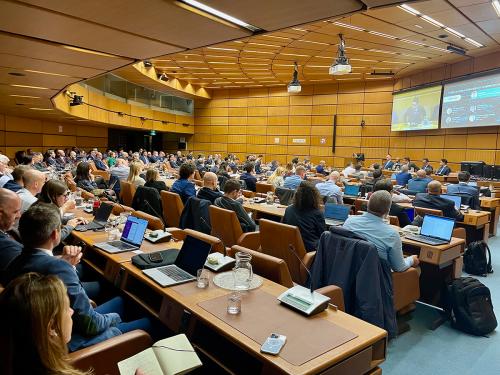New working group to tackle corruption risks in the minerals sector

The mining sector is a backbone of many national economies. Yet recent trends including the surge in gold prices and the global competition for minerals essential to the energy transition are making the sector more vulnerable than ever to corruption. In response, a new working group aims to confront these challenges through collective action.
A rising challenge: corruption across the minerals value chain
Mineral corruption refers to the abuse of power for private gain at any stage of the minerals value chain. It takes many forms, from irregular licensing and data manipulation to undue influence over environmental processes, conflicts of interest, and opaque corporate structures used for tax evasion or to legalise illegally extracted minerals.
These practices directly undermine good governance, fuel inequality, facilitate environmental harm and divert revenues that should support national development.
Why experts are sounding the alarm
The call for action comes from the Countering Environmental Corruption Practitioners Forum, a platform launched by WWF, the Basel Institute on Governance, Transparency International and TRAFFIC. The Forum was created to bring conservationists and anti-corruption practitioners together to address corruption as a fundamental driver of environmental degradation, biodiversity loss and climate change.
Against this backdrop, the organisations coordinating the new Working Group – including the Basel Institute on Governance, Extractive Industries Transparency Initiative (EITI), Natural Resource Governance Institute (NRGI) and the Organisation for Economic Co-Operation and Development (OECD) – highlight that a coordinated professional response is urgently needed. The consequences for ecosystems, governance systems and societies are accelerating.
The soaring price of gold
Record gold prices have driven a sharp rise in illegal mining worldwide. The result has been increasing deforestation, widespread mercury contamination and the expansion of criminal networks linked to extraction and trade.
Transnational organised crime groups, as well as state and non-state armed actors, are using precious metals and stones supply chains for money laundering, terrorist financing and sanctions evasion.
The global race for critical minerals
Gold is not the only concern. Demand for critical minerals such as nickel, copper, cobalt and rare earth elements is rising rapidly. These minerals are vital for the energy transition, the defence sector and high-tech industries.
As the competition to secure these resources intensifies, so do environmental, social and governance risks. Without stronger integrity measures, the expansion of the minerals sector risks repeating and amplifying the systemic failures of past resource booms.
A collective response: the new Minerals Corruption Working Group
To help address these challenges, the Countering Environmental Corruption Practitioners Forum has launched the new Minerals Corruption Working Group. Its aim is to bring together mining-sector professionals, governance experts and anti-corruption practitioners to exchange experiences, discuss emerging trends and explore collaborative solutions.
The Working Group will provide a space for peer learning, case discussion and cross-border collaboration.
First session on 9 December
The first session will take place online on 9 December, with simultaneous interpretation in English, French and Spanish. Participants will work in breakout groups to define:
- priority topics for 2026;
- relevant professional experience;
- expectations and needs the Working Group could address.
Participation is free and open to any interested professional.
Next steps
- Interested in joining the first session of the new Working Group? Sign up for the launch event on 9 December and take part in this growing community of professionals at the forefront of tackling corruption in the minerals sector.
- Looking for another working group? The Countering Environmental Corruption Practitioners Forum also hosts groups on land corruption, follow-the-money, open data and climate finance.



